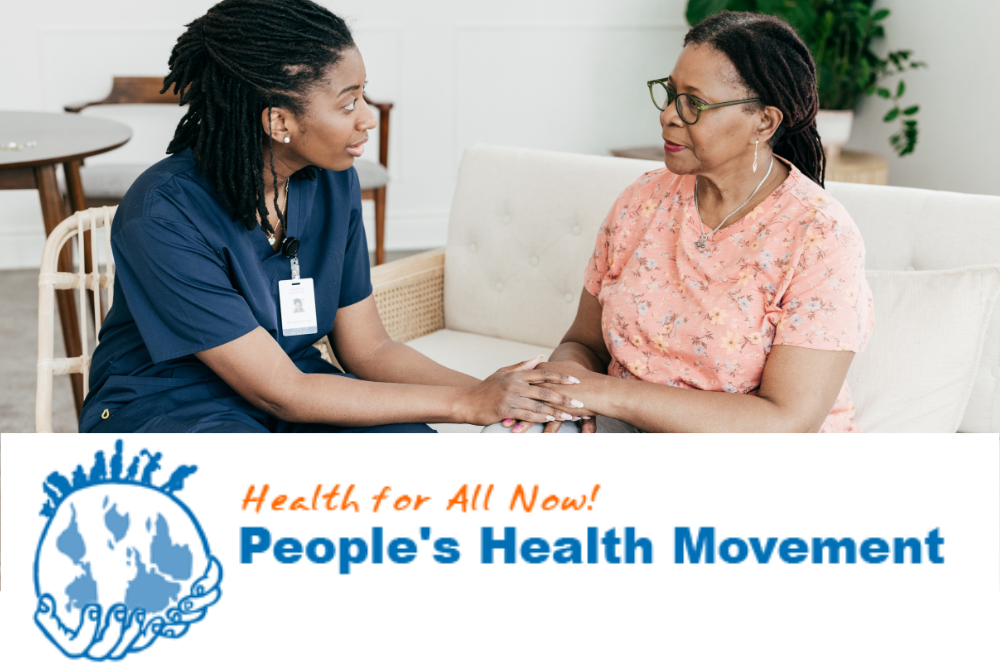International Workers’ Day: Day of Solidarity
Statement by Gender Justice and Health Thematic Circle, People’s Health Movement (PHM)
As we commemorate International Workers' Day this week, the Gender Justice and Health Thematic Circle of the People’s Health Movement (PHM), reflects on how women’s work, particularly that of the most marginalized, racialized, gender non-binary people, and those living with disabilities, continues to be undervalued and invisibilized.
Women and gender non-binary persons are concentrated in the most precarious forms of labour such as women workers in agriculture and mining, sex workers, migrant workers, women workers in factories, gig workers, and domestic workers, frontline workers to name a few.
Through class, race, caste, gender identity, gender expression, disability, ethnicity, migratory and refugee status, and amid widening structural inequality and intersecting economic, social, and climate crises, women and gender non-binary workers are facing discrimination, social stigma, poor access to healthcare, physical and sexual abuse, a lack of fair wages, a lack of legal protection, a lack of social security and protection measures against exposure to chemicals and health crises, growing labour exploitation and repression by way of corporate union-busting, state authoritarianism, and the use of labour-displacing.
Despite making up 70% of the health workforce across health systems, women and gender non-binary persons only hold 25% of leadership roles. Importantly, this includes the majority of community health workers who are women volunteers or in the lowest-paid roles; they often work in unsafe conditions and readily pay out-of-pocket for their materials and equipment, despite being essential for the reorientation of health systems towards people-centred primary health care. Women health workers have tremendous potential to contribute to the realization of the goal of health for all. However, they face multiple challenges, including systemic and policy-level resistance, which are often rooted in gender power relations.
Finally, women, in particular, play an important role within the care economy for their work in social reproduction, as mothers, wives, caregivers, and domestic partners provide unpaid and undervalued labour in addition to their paid work while accumulating additional health costs.
The crisis of systemic violence demands greater accountability, gender justice, and fair policy and state responses. There is a pressing need for more public voices, demands, and solidarity to address these issues.
We call for:
- Legal and political recognition of all forms of informal or precarious work for people of all genders, including improved pay, safe working conditions, and the provision of social and legal protection, as a pathway to improved health, well-being, and dignity.
- A radical redress of gender inequity in the health workforce, including the provision of pay and benefits packages for community health workers who are critical for upholding the right to health for all in their communities,
- The rolling back of gender-discriminatory labour and social policies that consign the burden of unpaid caregiving work to women.
- Democratized, decommodified, deprivatised and publicly-funded health systems that can meet the needs of the world’s working class.
- An increase in women’s participation in the economy towards their human and labour rights.
Long live International Workers Day!
Long live International Feminist Solidarity!
#LabourDay #MayDay


